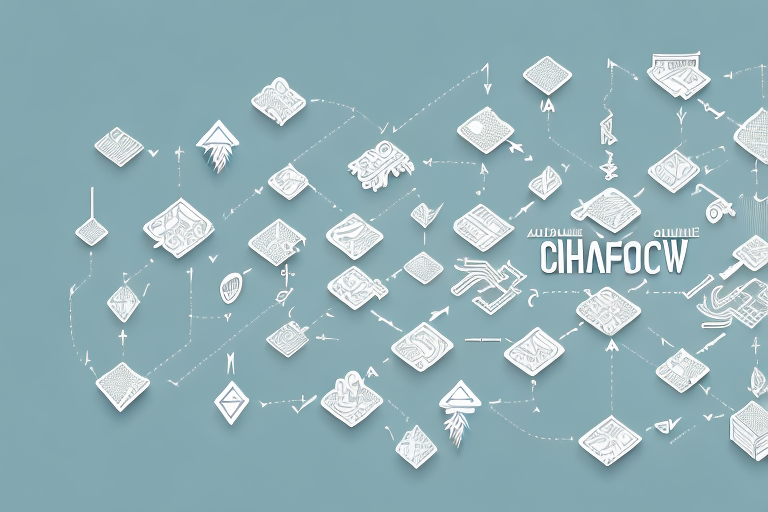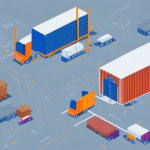Unlocking the Benefits of 4PL Logistics
In today’s rapidly evolving global economy, businesses grapple with a multitude of logistical challenges. As supply chains grow more intricate, companies are compelled to seek innovative solutions to optimize their logistics operations and maintain a competitive edge. One such solution that has gained prominence is 4PL logistics. This article delves into what 4PL logistics entails, its operational mechanisms, and the compelling reasons for businesses to outsource their logistics to a 4PL provider.
Understanding 4PL Logistics and Its Operations
4PL logistics, or fourth-party logistics, represents an advanced model of supply chain management. Unlike traditional logistics models—1PL (first-party logistics) through 3PL (third-party logistics)—where businesses manage their own logistics or partner with a third-party provider for specific tasks, 4PL providers oversee the entire supply chain. Acting as a lead logistics provider (LLP), 4PLs design, implement, and manage a company’s supply chain operations, coordinating the efforts of multiple logistics providers such as carriers, freight forwarders, and customs brokers.
Leveraging advanced technologies like Transportation Management Systems (TMS), Warehouse Management Systems (WMS), and Enterprise Resource Planning (ERP) software, 4PL providers gain comprehensive visibility into a company's supply chain. This holistic oversight enables them to identify inefficiencies, streamline operations, and implement data-driven improvements.
Key Responsibilities of a 4PL Provider
- Supply Chain Design: Creating efficient supply chain strategies tailored to a company's specific needs.
- Coordination of Logistics Partners: Managing relationships and performance of various logistics service providers.
- Technology Integration: Implementing and maintaining advanced logistics technologies to enhance visibility and efficiency.
- Performance Monitoring: Continuously analyzing supply chain performance and identifying areas for improvement.
Evolution of Logistics: From 1PL to 4PL
The logistics industry has undergone significant transformation, evolving from simple transportation operations to sophisticated, integrated supply chain management systems. This evolution is categorized into four distinct phases:
- 1PL (First-Party Logistics): Involves a company managing its own logistics operations, such as transportation and warehousing.
- 2PL (Second-Party Logistics): Entails partnering with a logistics provider for specific tasks like transportation or storage services.
- 3PL (Third-Party Logistics): Engages a third-party provider to handle complex logistics functions, including freight forwarding, warehousing, and distribution.
- 4PL (Fourth-Party Logistics): Involves a comprehensive approach where a 4PL provider manages and coordinates the entire supply chain, integrating multiple 3PLs and optimizing overall logistics performance.
Advancements in technology, globalization, and shifting consumer expectations have been pivotal in driving this evolution. For instance, the rise of e-commerce has necessitated faster, more reliable delivery systems, prompting businesses to adopt more sophisticated logistics models like 4PL to meet these demands.
Advantages of 4PL Over Traditional Logistics Models
Adopting a 4PL model offers numerous advantages compared to traditional logistics approaches, including:
Enhanced Efficiency and Cost Savings
By consolidating all logistics tasks under a single provider, businesses benefit from streamlined operations and reduced overhead costs. According to a Logistics Management Report, companies that utilize 4PL services have seen up to a 20% reduction in logistics costs due to improved efficiency and economies of scale.
Improved Supply Chain Visibility
4PL providers employ advanced technologies that offer real-time monitoring and comprehensive visibility across the entire supply chain. This transparency enables businesses to make informed, data-driven decisions, enhancing overall supply chain performance.
Access to Expertise and Advanced Technologies
4PL providers specialize in supply chain management and stay abreast of the latest industry trends and technologies. This expertise allows businesses to leverage cutting-edge solutions without the need for significant in-house investment.
Case Studies: Success Stories
Several companies have achieved remarkable results by partnering with 4PL providers. For example:
- Company A: Achieved a 30% reduction in logistics costs and a 60% improvement in on-time delivery rates by leveraging a 4PL provider’s comprehensive supply chain management solutions.
- Company B: Improved inventory accuracy by 25% and reduced order cycle times by 40% through the implementation of advanced technologies such as RFID tracking and real-time data analytics with the help of a 4PL provider.
Reasons to Outsource to a 4PL Provider
Outsourcing logistics to a 4PL provider offers several compelling benefits:
- Cost Reduction: Eliminates the need for maintaining in-house logistics teams and infrastructure, leading to significant cost savings.
- Enhanced Efficiency: 4PL providers utilize their expertise and resources to optimize supply chain operations, resulting in faster delivery times and reduced inventory levels.
- Strategic Focus: Allows businesses to concentrate on core competencies such as product development, marketing, and sales, while leaving logistics management to the experts.
- Advanced Technology Access: Provides access to sophisticated logistics technologies and analytics tools without the need for direct investment.
Furthermore, a 4PL can offer scalability, enabling businesses to adjust their logistics operations in response to seasonal demands or market expansions.
Key Features of a Successful 4PL Partnership
Establishing a fruitful partnership with a 4PL provider involves several critical factors:
Industry Expertise and Proven Track Record
Choosing a provider with extensive industry knowledge and a history of managing complex supply chains is essential for ensuring effective logistics management.
Strong Communication and Collaboration
Successful 4PL partnerships rely on open communication channels, regular meetings, and clearly defined roles and responsibilities to ensure seamless collaboration between all parties.
Customized Solutions
Each business has unique logistics requirements. A competent 4PL provider should offer tailored solutions that align with the specific needs and objectives of the client.
Commitment to Transparency and Accountability
Transparency in operations and accountability for performance metrics are crucial for building trust and ensuring the provider meets the company’s supply chain goals. Regular performance reports and updates are standard practices in effective 4PL partnerships.
Challenges and Solutions in 4PL Implementation
While the advantages of 4PL are significant, businesses may encounter several challenges during implementation:
Complex Coordination
Managing multiple logistics providers can be complex. A proficient 4PL provider mitigates this by centralizing coordination, reducing the complexity and ensuring all components of the supply chain work harmoniously.
Technology Integration
Integrating new technologies such as TMS, WMS, and ERP systems requires substantial investment and training. To overcome this, 4PL providers often offer implementation support and training services to facilitate smooth transitions.
Loss of Control
Outsourcing logistics may lead to a perceived loss of control over supply chain operations. To address this, establishing robust communication protocols and maintaining transparency ensures that businesses retain oversight and can influence critical decisions.
Data Security
Sharing sensitive supply chain data with a third party raises security concerns. Reputable 4PL providers employ advanced cybersecurity measures and adhere to strict data protection standards to safeguard client information.
The Role of Technology in Revolutionizing 4PL
Technology plays a pivotal role in the evolution and efficiency of 4PL logistics. Key technological advancements transforming the 4PL industry include:
Artificial Intelligence (AI) and Machine Learning
AI and machine learning algorithms analyze vast datasets to predict demand patterns, optimize routing, and enhance decision-making processes. According to a 2023 report by the World Economic Forum, the integration of AI in supply chain management can improve forecasting accuracy by up to 30%.
Blockchain Technology
Blockchain enhances supply chain transparency and traceability by providing a secure, immutable ledger of all transactions. This technology minimizes fraud, reduces errors, and improves trust among supply chain partners.
Internet of Things (IoT)
The IoT enables real-time monitoring of shipments, equipment, and inventory through connected devices. This real-time data facilitates proactive management of logistics operations, reducing delays and improving overall efficiency.
Automation and Robotics
Automation technologies, including robotics in warehouses and autonomous vehicles for transportation, streamline logistics processes, reduce human error, and lower operational costs.
Predictive Analytics
Predictive analytics tools forecast demand, identify potential disruptions, and optimize inventory levels. These insights enable 4PL providers to make informed, proactive decisions that enhance supply chain resilience.
Future Trends in 4PL Logistics
The 4PL industry is poised for continual evolution, driven by emerging trends and technological advancements. Key future trends include:
Growth of E-commerce
The ongoing expansion of e-commerce will increase demand for efficient, reliable logistics solutions. 4PL providers will need to adapt to the complexities of managing high volumes of small, frequent shipments while maintaining rapid delivery times.
Smart Logistics Systems
The integration of smart technologies will lead to more responsive and adaptive logistics systems. Smart logistics systems utilize data analytics, AI, and IoT to create dynamic supply chains that can swiftly respond to changes and disruptions.
Personalized and On-Demand Logistics Services
Customers are increasingly expecting personalized and on-demand logistics services, such as same-day delivery and customized shipping options. 4PL providers will need to offer flexible, tailored services to meet these evolving consumer expectations.
Sustainability and Green Logistics
Environmental responsibility is becoming a critical focus for businesses. 4PL providers will be expected to implement sustainable practices, such as optimizing transportation routes to reduce carbon emissions, utilizing eco-friendly packaging materials, and adopting green technologies in warehousing operations.
Collaborative Supply Chain Networks
Collaboration among supply chain partners will become increasingly important. 4PL providers will facilitate greater collaboration by enabling seamless information sharing and fostering strategic partnerships, enhancing overall supply chain efficiency and resilience.
Resilient and Adaptive Supply Chains
In response to global disruptions such as pandemics, natural disasters, and geopolitical tensions, 4PL providers will focus on creating resilient and adaptive supply chains. This involves diversifying supplier bases, increasing inventory buffers, and implementing robust risk management strategies to ensure continuity and reliability.
As supply chains continue to grow in complexity, the role of 4PL providers will become even more critical. By partnering with specialized logistics experts, businesses can achieve greater efficiency, lower costs, and enhanced customer satisfaction, fully unlocking the benefits of 4PL logistics.




















